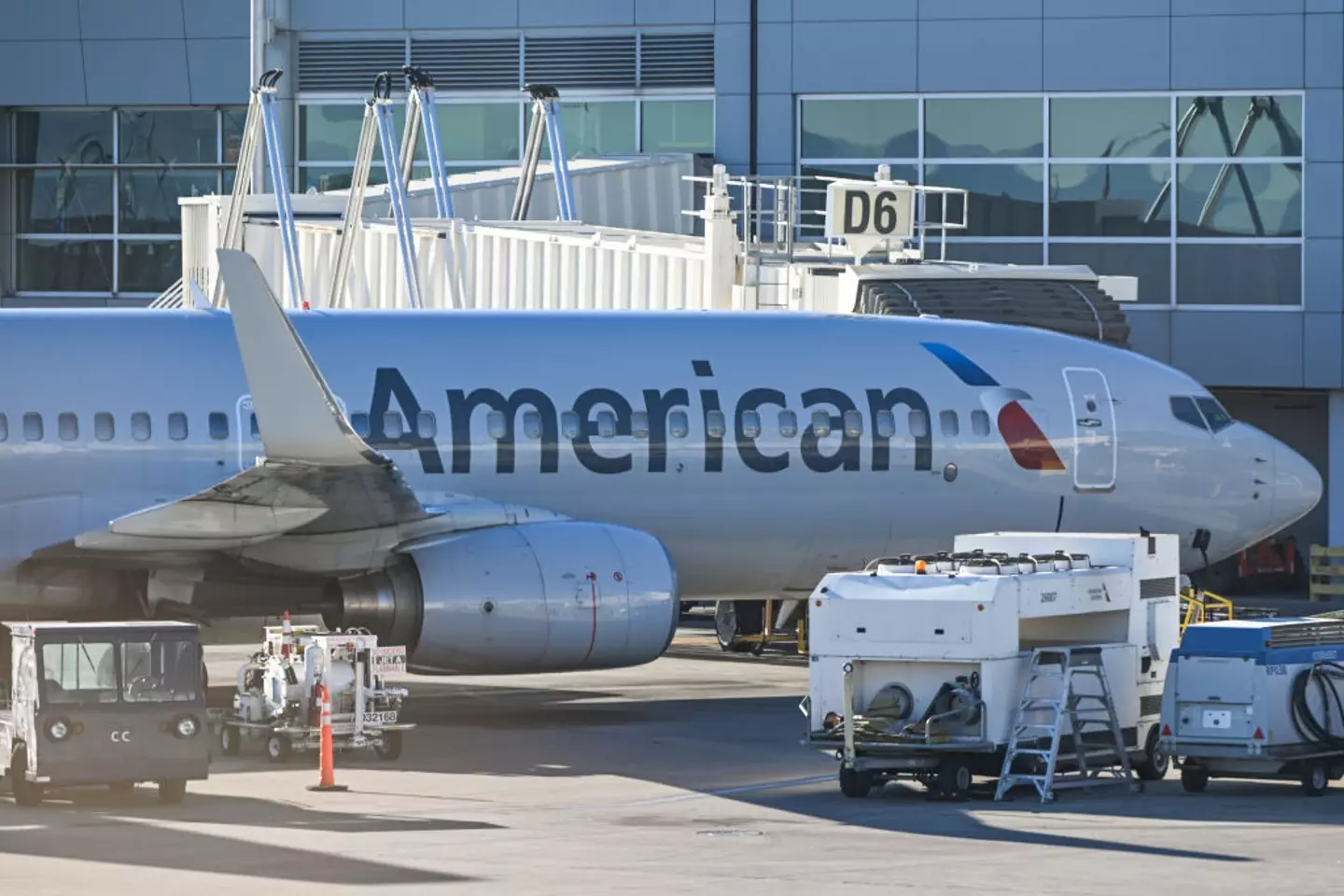We all love that first class treatment, but when it comes to flying, it’s a luxury travel most of us can only dream of. While some sit in first class, coiffing their champagne, the rest of us are sat back in cattle class between the screaming kids and noisy eaters.
The idea of having a lifetime first class ticket for just a fraction for what it would cost to take those flights separately might sound like it’s too good to be true, and that’s because it is. This is the story of Steven Rothstein, the man who had his supposedly ‘lifetime’ first class ticket revoked by American Airlines.
With American Airlines looking for a new revenue stream, it introduced the AAirpass back in 1981. The idea was that passengers could pay $250,000 (no small sum), but in return, they’d get unlimited first class travel for either five years or a lifetime.
.webp)
The passenger was one of 66 to purchase the ticket (Caroline Rothstein)
The idea wasn’t exactly successful, and with only 66 people buying the original AAirpass, it was hardly the money-spinner American Airlines was hoping it would be.
Rothstein is the most famous of the AAirpass 66, mainly because the Chicago financier later upgraded his membership to the lifetime option in 1987 and then added the $150,000 ‘companion pass’ (allowing for a second passenger) two years later.
While Rothstein enjoyed many years of circling the globe on planes – and apparently became great friends with the crew – his dreams were grounded in 2007. During a time of financial instability, American Airlines assigned a ‘revenue integrity unit’ to look at the AAirpass and potential abusers of the system.
It was here that the airline determines Rothstein and another passenger called Jacques Vroom were costing it $1 million per year.
With Rothstein unaware that his life of luxury was hitting American Airlines in the wallet, he was shocked to learn his AAirpass was being terminated. On December 13, 2008, Rothstein was reportedly stranded at Chicago O’Hare International Airport when he was handed a letter informing him that American Airlines was terminating his pass due to ‘fraudulent behavior.’

After rinsing the ticket, Rothstein had it removed by American Airlines (Zoonar RF/Getty)
Rothstein wasn’t going to take this lying down, and denying that he’d try to cheat the system, he tried to sue American Airlines in 2011. Although the judge sided with the airline and denied Rothstein’s appeal, things were reportedly settled out of court in 2012.
It sounds like the man himself knew he was onto a good thing, telling Forbes in 2019, “They told me that they viewed the AAirpass like a bond, so it was as if I was lending the airline money, and they needed money. So they gave me a very good deal.”
There might’ve been more to the story, as Rothstein admitted that he often gave miles away to those with ‘a good story’: “I gave a man in Seattle a ticket to go to his father’s funeral. I gave many people tickets to visit ill family members. I don’t view that as philanthropy, I view that as good deeds.”
He unsurprisingly stopped flying with American Airlines following the AAirpass scandal, instead choosing United Airlines his preferred carrier.
One man was banned from flying after he cost an airline a fortune with his lifetime first class ticket.
Many would undoubtedly take advantage of the opportunity to purchase a lifetime first class ticket for a fraction of its actual price.
It would mean no more crammed seats, crying children and long queues – what a dream!
Back in 1981, American Airlines introduced the AAirpass. It was a prepaid membership that offered discounted flights to frequent travellers.
Then, for $250,000, travellers could purchase unlimited first-class travel for either five years – or pay a bit more for a lifetime of luxury in the sky.
However, the offer didn’t take off as the airline hoped it would as only 66 people purchased the original AAirpass.
But one of them, Chicago-based financier Steven Rothstein, became infamous for how far he took the deal.

‘He flew so much it paid for itself’ (Caroline Rothstein)
In 1987, Rothstein upgraded to the lifetime option. Two years later, he added the $150,000 ‘companion pass,’ which allowed him to fly with a guest.
Over the years, he flew constantly and became well-known among flight crews.
In one news article, his daughter Caroline Rothstein wrote: “A quarter of a million dollars gave him access to fly first class anywhere in the world on American for the rest of his life. He flew so much it paid for itself.”
But in 2008, Rothstein’s golden ticket was seized.
During a time of financial instability, American Airlines created a ‘revenue integrity unit’ to investigate whether the AAirpass program was costing more than it was worth.
It turns out that Rothstein and another member, named Jacques Vroom, were costing the airline about $1 million a year in travel.
Without warning, in December 2008, the airline pulled the plug on Rothstein’s pass.

Rothstein tried to sue American Airlines in 2011 (Kevin Carter / Contributor / Getty)
He learned this when he was reportedly stranded at Chicago O’Hare International Airport and handed a letter accusing him of ‘fraudulent behaviour.’
But Rothstein didn’t go down without a fight. He denied any wrongdoing and tried to sue American Airlines in 2011.
While the court sided with the airline, the case was settled privately in 2012.
“They told me that they viewed the AAirpass like a bond, so it was as if I was lending the airline money, and they needed money,” Rothstein told Forbes in 2019. “So they gave me a very good deal.”
He insists he used the pass to help others, adding: “I gave a man in Seattle a ticket to go to his father’s funeral. I gave many people tickets to visit ill family members. I don’t view that as philanthropy, I view that as good deeds.”
After the fallout, Rothstein decided to ditch American Airlines altogether and switched his loyalty to United Airlines.
Flying first class is a luxury most of us can only dream about.
While some get to enjoy the luxury of comfier seats and priority service, the rest of us are stuck back in economy class, squeezed between crying kids and angry passengers.
So the possibility of having a lifetime first-class ticket – for a fraction of what it would normally cost – sounds like something that can’t be passed up.
Back in 1981, American Airlines launched the AAirpass, a bold attempt to generate revenue.
For $250,000, you could buy unlimited first-class travel for either five years or, if you were willing to pay a bit more, a lifetime.
However, the offer didn’t take off as well as expected.

FAROOQ NAEEM / Contributor / Getty
Only 66 people purchased the original AAirpass, making it more of a niche perk than a financial success for the airline.
But Steven Rothstein, a Chicago financier, became the most famous member of this exclusive group.
This was mainly because the Chicago financier later upgraded his membership to the lifetime option in 1987. He also added the $150,000 ‘companion pass’ two years later, letting him bring a guest on his first-class adventures.
While Rothstein enjoyed many years of circling the globe on planes and making friends with the flight crew – his golden ticket was clipped in 2007.
During a time of financial instability, American Airlines created a ‘revenue integrity unit’ to investigate whether the AAirpass program was costing more than it was worth.
It was here that the airline determined Rothstein and another passenger called Jacques Vroom were costing them $1 million per year.
With Rothstein unaware that his life of luxury was draining American Airlines’ wallet, he was stunned to find his pass had been revoked in December 2008.

NurPhoto / Contributor / Getty
He learned this when he was reportedly stranded at Chicago O’Hare International Airport and handed a letter accusing him of ‘fraudulent behaviour.’
But Rothstein didn’t go down without a fight – denying any wrongdoing and trying to sue American Airlines in 2011.
Whilst the court sided with the airline, the case was eventually settled out of court in 2012.
“They told me that they viewed the AAirpass like a bond, so it was as if I was lending the airline money, and they needed money,” Rothstein told Forbes in 2019. “So they gave me a very good deal.”
He seemed to use his powers for good not evil, saying: “I gave a man in Seattle a ticket to go to his father’s funeral. I gave many people tickets to visit ill family members. I don’t view that as philanthropy, I view that as good deeds.”
After the whole shenanigans went down, Rothstein unsurprisingly stopped flying with American Airlines and instead switched his loyalty to United Airlines.
When taking to the skies, the first class experience is one that many of us aspire to enjoy but simply can’t afford. So, you can imagine that people would jump at the chance to get a ‘lifetime’ first class ticket for just a fraction of the price it would cost to take all those flights.
This happened in the 1980s, with American Airlines’ botched AAirpass and the now-infamous story of Steven Rothstein.
Although only 66 people shelled out the $250,000 for lifetime membership, it seemed like a lucrative deal to Rothstein, who then spent decades flying high at American Airlines’ expense.
However, when the airline stopped Rothstein from boarding a flight with a friend in December 2008, he was shocked to learn American Airlines was revoking his supposedly ‘lifetime’ ticket. Apparently, his years of using the AAirpass had cost the airline a jaw-dropping $21 million.
.webp)
Steven Rothstein was one of 66 people who bought the exclusive firstclass pass (Caroline Rothstein)
It didn’t take long for a disgruntled Rothstein to mount legal proceedings against American Airlines, but who won the case?
Unfortunately for this one, the little guy didn’t win.
American Airlines cited ‘fraudulent behavior,’ saying that Rothstein would approach fellow passengers at the gate and offer them a free upgrade to his companion seat (something he bought as a $150,000 add-on). He was also accused of purposefully keeping his companion seat empty and using it as a place to put his luggage while booking under a fake name.
Taking American Airlines to the United States District Court for the Northern District of Illinois, Rothstein’s team argued: “American waived its rights to enforce the contract by not cracking down on Rothstein sooner.” Having made the most of AAirpass for 21 years, it does feel like American Airlines was trying to close the gate after the horse had bolted.
The motion was denied in 2011, while litigation was delayed due to American Airlines filing for Chapter 11 bankruptcy. Both parties had settled out of court by the end of 2012, although Rothstein’s appeal was dismissed and the airline’s counterclaims dismissed with prejudice.

Another passenger, Jacques E. Vroom Jr. was also handed a letter similar to Rothstein (seng kui Lim/500px/Getty)
Rothstein wasn’t the only one to face the wrath of American Airlines over the AAirpass, and in July 2008, Jacques E. Vroom Jr. was handed a letter similar to Rothstein. The airline tried to sue Vroom in 2011 and claimed that he was selling his companion seat, while Vroom countersued by arguing that the rule went into effect after he bought the ticket – as well accusing the airline of slander.
Vroom’s case fell apart when American Airlines filed for bankruptcy and the claims went unresolved. Rothstein has since admitted that he was ‘generous’ with upgrading people he met on planes if they had a good story, and at the end of the day, thinks he got a pretty good deal from American Airlines.
A man who cost an airline $21 million tried to sue them after he had his lifetime first class ticket removed while traveling.
When Steven Rothstein first bought his $250,000 membership for life, it seemed like the deal of a lifetime.
It came with unlimited first class flights and for an $150,000 add-on, Rothstein could bring a companion.
Only 66 people ever took American Airlines up on their offer and Rothstein spent decades enjoying his lifetime membership.
That is, until it came to an abrupt end in December 2008.
He was shocked to discover that the airline had revoked his ticket after he had cost them a whopping $21 million.
But he wasn’t going to go down without a fight and he decided to take American Airlines to court by suing them.
Unfortunately for Rothstein though, things didn’t sway in his favor.
The company cited ‘fraudulent behaviour’, claiming that the man would approach other passengers at the gate and offer them a free upgrade using his companion seat.
He was also accused of purposely keeping his companion seat empty and using it as a place to put his luggage while booking under a fake name.
Taking American Airlines to the United States District Court for the Northern District of Illinois, Rothstein’s team argued: “American waived its rights to enforce the contract by not cracking down on Rothstein sooner.”
_.webp)
Another passenger, Jacques E. Vroom Jr. was also handed a letter similar to Rothstein (seng kui Lim/500px/Getty Images)
Having made the most of AAirpass for 21 years, it does feel like American Airlines was trying to close the gate after the horse had bolted.
The motion was denied in 2011, while litigation was delayed due to American Airlines filing for Chapter 11 bankruptcy. Both parties had settled out of court by the end of 2012, although Rothstein’s appeal was dismissed and the airline’s counterclaims dismissed with prejudice.
Rothstein wasn’t the only one to face the wrath of American Airlines over the AAirpass, and in July 2008, Jacques E. Vroom Jr. was handed a letter similar to Rothstein. The airline tried to sue Vroom in 2011 and claimed that he was selling his companion seat, while Vroom countersued by arguing that the rule went into effect after he bought the ticket – as well accusing the airline of slander.
Vroom’s case fell apart when American Airlines filed for bankruptcy and the claims went unresolved. Rothstein has since admitted that he was ‘generous’ with upgrading people he met on planes if they had a good story, and at the end of the day, thinks he got a pretty good deal from American Airlines.
Featured Image Credit: Caroline Rothstein/seng kui Lim/500px/Getty Images



